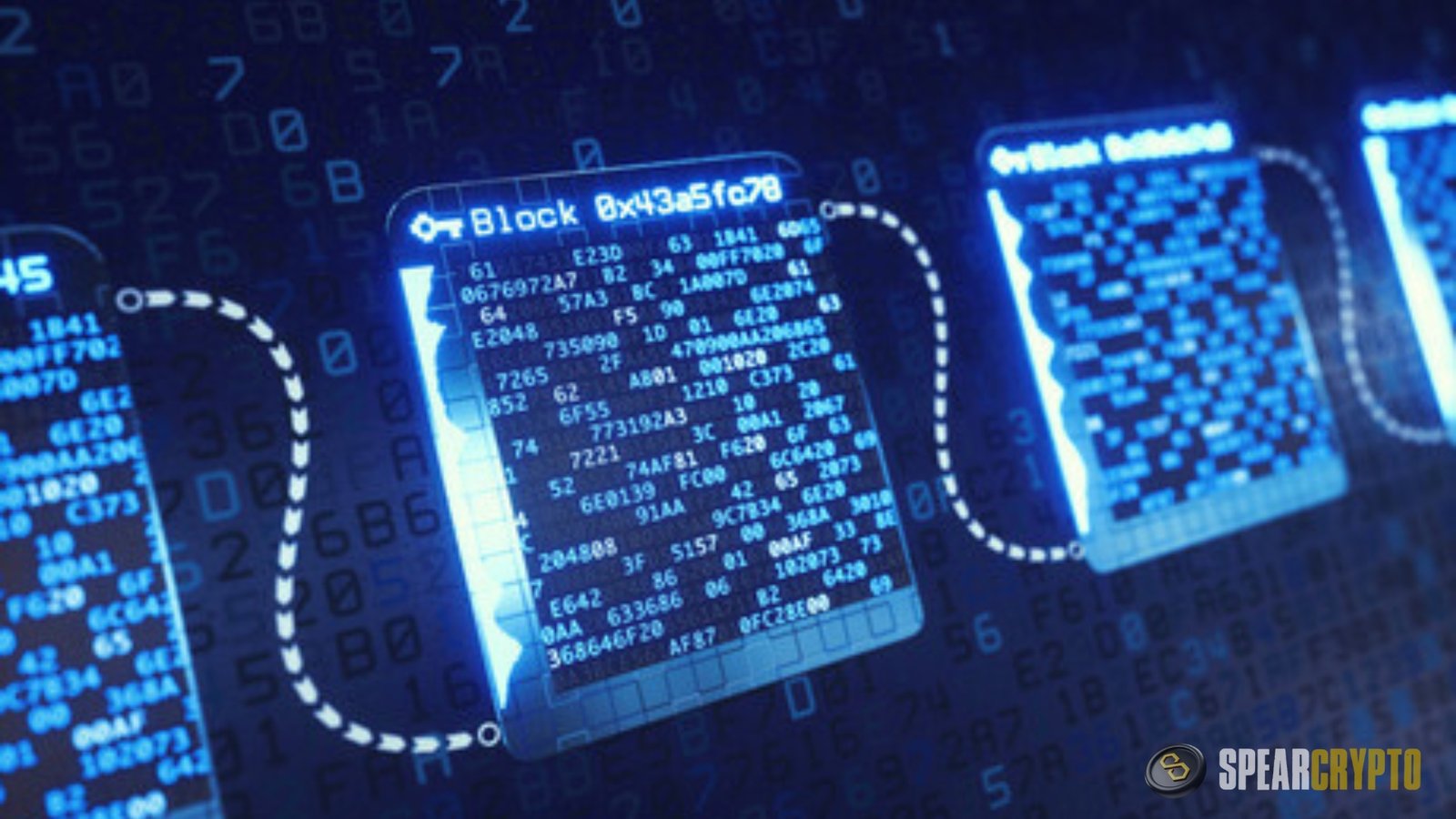
Blockchain Domains: From its beginning, the idea of a domain name has served as the foundation of the internet. Domain names, such as “example.com,” are often registered through registrars like GoDaddy or Namecheap and overseen by centralized agencies like ICANN. These domain names connect users to certain IP addresses, which humans more easily understand. However, blockchain technology has brought about a paradigm shift: blockchain domains. These domains are more than just numerical addresses on the web; they herald a paradigm shift in the management of online identities.
What Are Blockchain Domains?
There are digital identities called blockchain domains on the distributed ledger technology known as blockchain, which is transparent, secure, and immutable. These identities are decentralized, secure, and owned by the users. Blockchain domains are registered on a distributed ledger, eliminating the middleman and granting users complete control over their domain names. This contrasts traditional domains, which are registered and managed by centralized corporations.
The Ethereum Name Service (ENS) is among the most well-known blockchain domain systems operating on the Ethereum blockchain. Users of ENS can register domain names ending in “.eth,” which can be utilized to build decentralized websites, streamline Bitcoin transfers, and substitute complicated wallet addresses. Domain extensions ending in “.crypto” or “.zil” (on the Zilliqa blockchain) are provided by Unstoppable Domains, another prominent example, and they provide comparable functions.
Key Features of Blockchain Domains
Decentralization
Blockchain domains are decentralized, meaning any single entity does not control them. This contrasts with traditional domain systems, where registrars and governing bodies have significant control over domain ownership, transfers, and renewals. Decentralization ensures that users have full control over their domains, reducing the risk of censorship, seizure, or loss due to third-party actions.
Ownership and Control
When you purchase a traditional domain, you rent it from a registrar. The registrar retains ultimate control, and you must pay renewal fees to maintain ownership. In contrast, blockchain domains are fully owned by the purchaser once they are registered. These domains are stored in a digital wallet as a non-fungible token (NFT), meaning ownership is verifiable on the blockchain and can be transferred or sold like any other NFT.
Censorship Resistance
Because blockchain domains are decentralized and stored on a blockchain, they inherently resist censorship. Governments or other entities can seize or censor traditional domain names by pressuring the central authorities or registrars that control them. Blockchain domains, on the other hand, do not rely on these centralized systems, making it much harder for any entity to censor or take down a domain.
Security
Blockchain technology provides a high level of security due to its cryptographic nature. Domain ownership is secured by the private keys associated with a user’s digital wallet. The domain cannot be stolen or hijacked if these keys remain secure. Additionally, the decentralized nature of blockchain reduces the risk of DNS (Domain Name System) attacks, such as cache poisoning or DDoS attacks, that traditional domains are vulnerable to.
Simplified Cryptocurrency Transactions
One of the most practical uses of blockchain domains is simplifying cryptocurrency transactions. Instead of using long, complex wallet addresses, users can send and receive cryptocurrencies using their blockchain domain name (e.g., Alice.eth). This reduces the risk of errors when entering wallet addresses and makes transactions more user-friendly.
Decentralized Websites
Blockchain domains can be used to host decentralized websites. These websites are stored on peer-to-peer networks like IPFS (InterPlanetary File System), resistant to takedowns and censorship. By using a blockchain domain to point to an IPFS-hosted website, users can create web pages that are both decentralized and secure.
How Blockchain Domains Work
Blockchain domains work by leveraging the blockchain’s ability to store and manage data in a decentralized and immutable manner. Here’s a simplified explanation of how they function:
Domain Registration
Users typically interact with a smart contract on a blockchain platform like Ethereum to register a blockchain domain. The smart contract governs domain registration rules, such as availability, fees, and ownership transfer. Once a domain is registered, it is stored on the blockchain as an NFT associated with the user’s digital wallet.
Domain Resolution
Traditional domain names are resolved using the DNS, a hierarchical system that maps domain names to IP addresses. Blockchain domains, however, use a different resolution process. When a user enters a blockchain domain name in a compatible browser, the browser interacts with the blockchain to retrieve the necessary information (such as the IPFS hash or cryptocurrency wallet address) associated with that domain. This process does not rely on central servers, making it more secure and resilient.
Integration with Cryptocurrency Wallets
Blockchain domains can be integrated with cryptocurrency wallets, allowing users to associate their domain with various cryptocurrency addresses. For example, users could link their “alice.eth” domain to their Bitcoin, Ethereum, and Litecoin addresses. When someone wants to send them cryptocurrency, they only need to enter “alice.eth” instead of a long string of alphanumeric characters.
Decentralized Hosting
Decentralized websites hosted on networks like IPFS can be accessed using blockchain domains. The domain name points to the content’s IPFS hash, allowing the browser to retrieve the data from the peer-to-peer network. This eliminates the need for traditional web hosting services and provides a more secure, censorship-resistant platform for web content.
Advantages of Blockchain Domains
Enhanced Privacy
Traditional domain registrations often require users to provide personal information stored in publicly accessible databases like WHOIS. This can lead to privacy concerns and potential misuse of personal data. Blockchain domains, in contrast, do not require the same level of personal information, and ownership details are pseudonymous and associated with a digital wallet rather than an individual’s identity.
Cost Efficiency
While the initial cost of registering a blockchain domain may be higher than a traditional domain, there are no ongoing renewal fees. Once a blockchain domain is purchased, it is owned indefinitely, which can result in significant cost savings over time.
Interoperability
Blockchain domains are interoperable with various blockchain networks and can be used for multiple purposes, including cryptocurrency transactions, decentralized website hosting, and digital identity verification. This versatility makes them a valuable asset in the growing blockchain ecosystem.
Innovation Opportunities
The emergence of blockchain domains opens up new opportunities for innovation. Developers can create decentralized applications (dApps) that leverage these domains for secure identity verification, content distribution, and more. The potential for new use cases is vast and largely untapped, making this an exciting area for technological development.
Challenges and Limitations
Despite the numerous advantages, blockchain domains also face several challenges and limitations:
Adoption Barriers
The adoption of blockchain domains is still in its early stages, and many internet users are unfamiliar with the technology. Traditional domains have a significant head start in terms of user base and infrastructure, making it challenging for blockchain domains to gain widespread acceptance.
Compatibility Issues
Not all web browsers and applications currently support blockchain domains. This can limit their usability, as users may need to install specialized plugins or use specific browsers to access blockchain-based websites. Compatibility is expected to improve as the technology matures, but it remains a hurdle.
Regulatory Uncertainty
The regulatory landscape for blockchain technology is still evolving, and there is uncertainty regarding how governments will approach blockchain domains. Potential issues include how these domains will be taxed, whether they will be subject to the same regulations as traditional domains, and how disputes over ownership or use will be resolved.
Security Concerns
While blockchain technology is inherently secure, it is not immune to risks. Users must protect their private keys to prevent domain theft; smart contract vulnerabilities are always risky. Additionally, the decentralized nature of blockchain domains means no central authority can assist in recovering lost or stolen domains.
Scalability Issues
As the popularity of blockchain domains grows, the underlying blockchain networks may face scalability challenges. High transaction volumes can lead to network congestion, increasing the cost and time required to register or transfer domains. Solutions like layer-2 scaling and alternative blockchain platforms are being explored to address these issues.
The Future of Blockchain Domains
The future of blockchain domains is promising, with the potential to revolutionize how we think about digital identity and ownership on the internet. As blockchain technology evolves, we expect increased adoption of blockchain domains driven by their security, privacy, and decentralization advantages.
Several trends are likely to shape the future of blockchain domains:
- Increased Adoption As more users become aware of the benefits of blockchain domains, adoption is expected to increase. This will likely be driven by the growth of the decentralized web (Web3), where blockchain domains play a crucial role in enabling secure, user-controlled online identities.
- Improved Compatibility As the technology matures, we expect improved compatibility with mainstream browsers and applications. This will make it easier for users to access and use blockchain domains, reducing the barriers to entry.
- New Use Cases As developers continue to explore the potential of blockchain domains, new use cases are likely to emerge. These could include decentralized social media platforms, blockchain-based email services, and more sophisticated digital identity solutions.
- Regulatory Clarity Over time, we can expect clearer regulatory frameworks to emerge, providing more certainty for users and businesses. This will help address current challenges and encourage wider adoption of blockchain domains.
- Interoperability and Integration Blockchain domains will likely become more interoperable with other blockchain-based technologies, such as decentralized finance (DeFi) platforms and non-fungible tokens (NFTs). This will create a more interconnected and vibrant blockchain ecosystem where blockchain domains serve as a central component.
Conclusion
Blockchain domains represent a significant step forward in the evolution of internet infrastructure. By offering a decentralized, secure, and user-controlled alternative to traditional domain names, they have the potential to reshape how we interact with the digital world. While there are still challenges to overcome, the future of blockchain domains looks bright, with exciting opportunities for innovation and growth on the horizon. As the internet continues to evolve, blockchain domains are poised to play a central role in the emerging Web3 ecosystem, empowering users with greater control over their digital identities and online presence.








